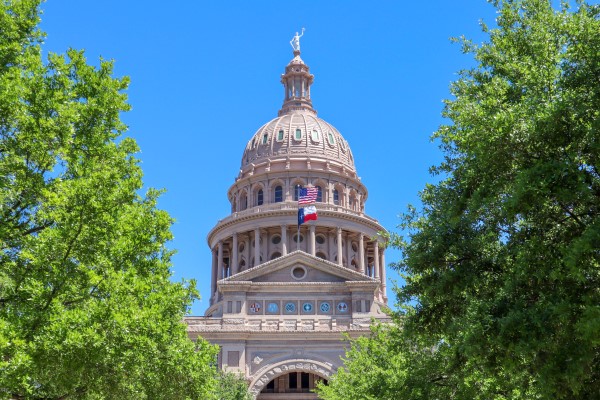Public Policy
Key Takeaways from the Partnership’s Public Policy Kickoff Meeting
3/31/25
The Greater Houston Partnership recently convened members from all seven of its public policy advisory committees for a joint kickoff meeting that set the stage for our 2025 advocacy efforts. The meeting offered an in-depth look at the current policy landscapes in Washington, D.C. and Austin, and gave members a preview of the issues our committees will be tackling throughout the year.
This collaborative forum underscored the Partnership’s commitment to driving thoughtful, business-informed policy across education, energy, health care, immigration, local government, technology, and transportation and infrastructure.
What We're Watching in Washington and Austin
Our expert partners at Cornerstone Government Affairs and Troutman Pepper Locke walked members through the major legislative developments at the federal and state levels.
Federal Outlook: Cornerstone’s Tyler Nelson emphasized that the first 100 days of the administration have been among the most active in recent memory. With major shifts on the horizon—particularly in tax, energy regulation, immigration, and trade—many executive actions are expected to face legal challenges. Industry-specific tariffs are anticipated in early April.
State Outlook: Troutman Pepper’s Robert Miller highlighted bipartisan cooperation in the Texas Legislature as they work to allocate the state’s historic $24 billion surplus. Key debates center on education funding, water infrastructure, and a bold new proposal for a Dementia Prevention Research Institute of Texas (DPRIT).
Partnership Policy Priorities for 2025
Following the policy briefings, our internal team of subject-matter experts led a panel discussion spotlighting the key issues each advisory committee will focus on this year:
Education
To align with broader education reform efforts, the Partnership has unified its public and higher education committees into a single, streamlined Education Advisory Committee. We’re closely monitoring bills that address early childhood education, school safety, and critical investments in public education, including House Bill 2, which proposes nearly $8 billion in funding enhancements.
Energy
Houston’s energy future is rooted in an all-of-the-above strategy. While oil and gas remain foundational, we’re seeing increasing momentum in solar, hydrogen, and nuclear innovation. The city’s designation as a federal Hydrogen Hub and major projects like the Sunnyside Solar Farm reflect the region’s growing leadership in the energy transition.
Health Care
Mental health in the workplace remains a top priority. With leadership from bp America and Deloitte, the Health Care Advisory Committee is exploring strategies to improve mental health outcomes and reduce burnout. At the state level, we’re supporting the $3 billion DPRIT proposal, which would expand research into neurological disorders and prevention.
Immigration
The Partnership continues to advocate for clear, consistent federal immigration policies that meet the needs of Houston’s business community. Our priorities include modernizing visa programs, resolving DACA status, streamlining case processing, and enhancing border security in a balanced and business-friendly way.
Local Issues
The Local Issues Committee is focused on responsible city budgeting, economic development, and regional resilience. As the Whitmire administration concentrates on public safety and basic services, we are also monitoring the implications of Proposition A, which allows more council members to influence the City Council agenda.
Tech Policy
With AI on the rise, the Partnership is engaged in statewide conversations about ensuring policy keeps pace with innovation. Our Tech Policy Committee is providing input on proposed AI regulations to ensure they are both effective and industry-aligned, helping strengthen Houston’s position as a growing tech hub.
Transportation & Infrastructure
The Partnership is supporting major efforts at both the state and federal levels to improve water and transportation infrastructure. At the state level, we’re backing new funding streams for water infrastructure and supporting TxDOT’s $148 billion transportation plan. Federally, we’re advocating for funding to advance the Texas Coastal Spine, a critical flood protection project for the Houston region.
Get Involved in Shaping Houston’s Future
The work of our public policy committees is central to ensuring that Houston remains a vibrant, globally competitive region. From education and infrastructure to innovation and immigration, our advocacy efforts are driven by the insights and experiences of our members. Want to have a seat at the table? Join a committee, share your business priorities, and deepen your engagement in shaping Houston’s future by getting in touch with member.engagement@houston.org.
Read More






















